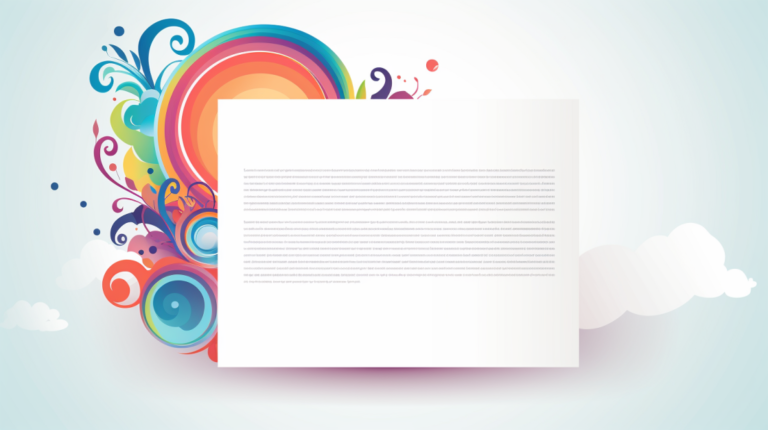Debt Consolidation Loans: Are They Worth It?

Navigating the sea of debt can truly feel like battling turbulent waves in a rowboat, can’t it? But don’t worry, you’re not alone – shifting between multiple high-interest loans often sends shudders down even the most experienced financial sailors.
Having traversed these waters myself and come out on top, I discovered this: Debt consolidation could be your guiding North Star! Wondering if such a strategy could help calm your stormy ocean of debts once and for all? Let’s set sail and explore!
Key Takeaways
- Debt consolidation puts all your debts in one place. It gives you one bill to pay each month.
- This kind of loan can make it easier to handle money. It could lower the interest rate and help raise your credit score.
- But, debt consolidation often comes with extra costs like fees and a possible increase in your interest rate over time.
- For this plan to work, stop spending too much money right away. Get control of your buying habits or you might get into more debt soon.
Understanding Debt Consolidation
Debt consolidation is a tool for managing your money. It brings together all your debts into one big loan with just one interest rate. That means you only have to think about one payment each month instead of many different ones.
You can use it for credit card debt, student loans and more.
This way, you might pay less money in the long run. The new loan’s interest rate could be lower than what you were paying before on all your old debts put together. But remember: Debt consolidation doesn’t make the total amount you owe go away; it just organizes it better so it’s easier to handle.
Plus, this can also help improve your credit score by making sure no payment gets lost or forgotten when there are fewer to worry about!
How Does Debt Consolidation Work?

Debt consolidation is a way to manage our debts. Here’s how it works:
- First, we pick all the debts we want to pay off, like credit cards, student loans, and auto loans.
- Then we take out a new loan at a lower interest rate.
- We use that money from the new loan to pay off our old, higher – interest rates debts.
- Now, instead of many bills each month, we have just one bill to pay.
- This one bill often has a lower total monthly payment than our old bills combined.
- If we stay on track with payments, we may be debt – free quicker than if we kept our old loans.
- It can make paying bills easier by having only one bill due date instead of many.
- It may lead to less stress as financial challenges are more manageable.
- Our credit score might go up if it looks like we handle money well.
- However, it won’t fix poor spending habits or make more money appear.
Pros of Debt Consolidation
Debt consolidation could streamline your finances, expedite your debt payoff process, potentially reduce your interest rate and monthly payments, and even improve your credit score.
Want to learn more? Keep reading.
Streamlines Finances
Making one payment a month is easier than keeping track of many bills. Debt consolidation makes this happen. It can take all your debts and join them into one loan with one monthly bill.
This can solve financial problems and make money matters less stressful for you. You will not get lost in piles of bills or forget to pay on time, which keeps your credit score safe too! Isn’t it nice having only one loan to think about instead of several? The aim is simple: make finance easy for everyone!
May Expedite Payoff
Paying off a debt faster is one of the big pros of debt consolidation. Instead of spending years trying to pay multiple debts, you can focus on one loan with a new timeline. You might get lucky and have a lower interest rate too.
This means less money goes into paying interest and more towards reducing your actual debt. Over time, it often leads to clearing the loan quicker than you thought possible!
Could Lower Interest Rate
One great thing about debt consolidation is the chance for a lower interest rate. It works well if you have high-interest credit cards or loans. A smaller rate means less money out of your pocket over time.
But, it’s crucial to compare rates before you choose this path. Picking a loan with fewer orgination fees can also help save money and speed up paying off your debt. So, always look around first and pick what fits best with your budget and goals!
May Reduce Monthly Payment

Debt consolidation loans can help lower your monthly costs. How does this happen? It is by spreading your payments over a longer period of time. This way, you don’t feel overwhelmed with big bills each month.
There is a bonus too. If your credit score got better since you took out the original loans, this could cause an even bigger drop in your monthly payment. Thus, debt consolidation serves as relief to many who are broke every month after paying high-interest debts.
Can Improve Credit Score
I see a real benefit to debt consolidation. It can help me boost my credit score. Late or missed payments hurt the credit score and make it less than perfect. Grouping all debts into one payment cuts down on this risk.
Also, paying off revolving loans like credit cards lifts up the credit score too! The secret is not just getting a loan, but making sure I repay on time every single month!
Cons of Debt Consolidation
While debt consolidation can provide relief, it may also come with hidden costs, potentially increase your interest rate and doesn’t always address the root cause of one’s financial issues.
Delve further to understand these cons before making a decision.
May Come With Added Costs
Debt consolidation may seem useful, but it can bring extra costs. You can end up paying more than you think. Most debt consolidation loans charge an upfront fee for the loan process.
They call this the origination fee. The amount is often a percent of what you borrow. Some loans also have late payment fees and prepayment penalties which could lead to higher out-of-pocket expenses over time if not handled with care.
Also, getting such a loan means applying for new credit, which causes a hard inquiry on your credit report that may lower your score slightly in the short term.
Could Raise Your Interest Rate
Watch out for higher interest rates. Some debt consolidation loans can lead to a rise in your rate. That means you’ll have to pay more over time. This might be the case if your loan has a high APR (Annual Percentage Rate).
It’s key not to forget this when weighing up the pros and cons of taking one out.
You May Pay More In Interest Over Time
Debt consolidation sounds great at first. You get to lump all your debts into one easy payment. But there’s a catch. Although you might pay less each month, the loan may last longer.
This means more dollars go towards interest over time. And guess what? The higher interest rate can add up fast! If that wasn’t enough, if you don’t fix bad spending habits or address financial issues, you could end up in deeper trouble with a high-interest credit card or car loan again too!
Risk of Missing Payments

Be careful with debt consolidation loans. Not making payments on time can hurt your credit score a lot. It can also lead to extra fees you have to pay. So, if you think there’s any chance you could miss a payment, it might not be the best choice for you.
Doesn’t Solve Underlying Financial Issues
Debt consolidation is not a cure-all. It puts different debts together into one payment. But it does not fix the root of the money issues. If you spend too much or don’t know how to manage your money, debt will stay a problem.
Making smart spending choices is key to financial health in the long run.
May Encourage Increased Spending
Debt consolidation loans can lead to more spending. I know this because once all my debts were in one place, I felt like it was okay to spend more. My credit cards were clear and ready for use again.
This became a big problem. Next thing I knew, new charges piled up on top of my debt consolidation loan. It’s clear now that using a debt consolidation loan isn’t the best choice if your buying habits are not under control.
When to Consider Debt Consolidation
Think about getting a debt consolidation loan when all your debts come with high interest rates. This is true for credit cards, student loans and car loans. Debt consolidation helps if you are dealing with several payments each month.
It brings them all into one payment. A better reason to consider this step is if your credit score has gone up since you took out those other high-interest-rate loans.
But it’s important to know that dropping lots of money on things you don’t need may lead back into debt problems again in the future—especially after consolidating previous obligations into a single loan.
Keeping spending habits under control keeps you safe from going deeper into debt after using a consolidation loan.
Also, make sure not just to consolidate but also focus on pushing away these habits that put in the place of needing such a solution initially.
How to Obtain a Debt Consolidation Loan
Getting a debt consolidation loan can be a good step. Follow these steps to do it:
- Check your credit score: Your score gives lenders an idea of how you handle money. A good credit score can help you get better terms on your loan.
- Add up your debts: Know what you owe before you start shopping for a loan.
- Compare loan offers: Look at different loans to see which one suits your needs.
- Choose a lender: Go with the lender that offers the best rates and terms for your situation.
- Complete an application: Fill out the paperwork to apply for the loan.
- Use the funds to pay off your debts: Once approved, take the money from your new loan and use it to repay your old ones.
- Keep up with payments: Stay on top of the new loan payments so you don’t fall behind.
Impact of Debt Consolidation on Your Credit Report
Debt consolidation can help or hurt your credit report. At first, your score might dip a bit. This is because you are taking on a new loan. Also, lenders do a hard pull on your credit to see if they can trust you with their money.
Over time though, debt consolidation could be great for your report! It makes it easy to pay off what you owe right and fast. With less missed payments, there will be good changes in how the banks view you.
Debt consolidation also brings down how much of your card limit gets used up each month which is another plus point for your score.
Frequently Asked Questions

In this section, I’ll tackle common queries like: Does a debt consolidation loan harm your credit score? Are all situations suitable for debt consolidation? And what’s the likelihood of approval for such loans? These inquiries are answered to ensure you have a full understanding of how these loans operate.
Do debt consolidation loans hurt your credit?
Debt consolidation loans might affect your credit in a few ways. They can lower your score if you apply for multiple loans and get hard pulls on your credit report. Missing a payment on a debt consolidation loan can hurt it too.
But, they can also help raise it over time. This happens when you always pay the loan back on time every month. If used right, debt consolidation loans could lead to an improved credit score.
When is debt consolidation not a good idea?
Debt consolidation isn’t always the best choice. If your credit score hasn’t gone up since getting the first loans, think twice before combining them. More costs can come with debt consolidation like origination and transfer fees, closing costs and yearly fees.
There’s also a chance you’ll end up paying more in interest over time! Plus, if you’re still spending too much money without addressing why, you may just create bigger financial problems for yourself down the line.
Is it hard to get approved for debt consolidation?
Getting a “yes” for debt consolidation can be hard. A lot depends on your credit score and report. If they look good, you might get approved fast. But if they don’t, it could be tough to get the okay.
Your loan size also matters, along with how much money you make each month in contrast to what you owe or spend. Debt-to-income ratio is important here and lenders will check this out too before saying yes or no.
Conclusion
Debt consolidation loans can be a smart step to control your debts. They make payments simple and could cost less each month. But you must take care of your spending habits too. A debt-free life is so much better!
FAQs
1. What are debt consolidation loans?
Debt consolidation loans replace multiple debts with a single loan. It could be personal, auto or student loans to help manage payment history and lower interest rates.
2. Are there debt consolidation loans for bad credit?
Yes, some lenders offer debt consolidation loans for people with bad credit but the interest rate might be higher. A financial advisor can guide you on the pros and cons of this loan type.
3. How do balance transfer credit cards work in debt relief?
Balance transfer cards let you move high-interest debts onto a card with a lower interest rate, often better than your current credit card rate.
4. Can a personal loan improve my credit score?
Yes, if used wisely! By paying off outstanding debts on time using personal loans, it improves your payment history which is good for your FICO score held by Credit Bureaus.
5. Why choose the Debt Snowball Method as part of my Debt Management Strategies?
The Debt Snowball method helps you pay smaller debts first to get them out of the way before tackling bigger ones; many find winning over small amounts motivating towards financial wellness!
6.Do mortgage rates apply in consolidating my Student Loans?
Refinancing may allow homeowners to use their mortgages’ usually low rates to consolidate student loan refinance into one manageable monthly payment.






